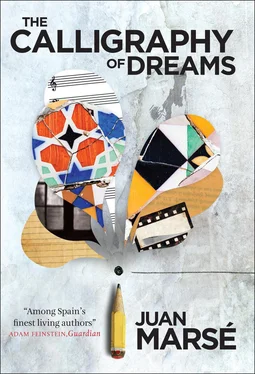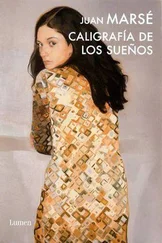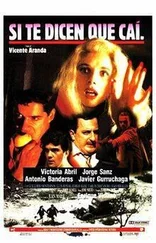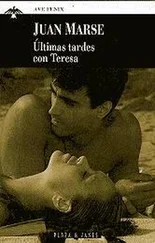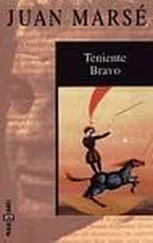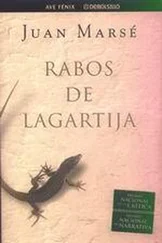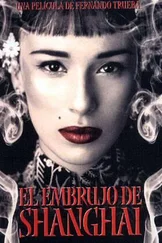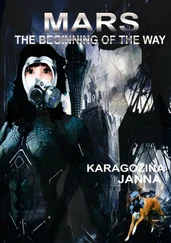“Ah, no? And what would you know?”
“I’ve never seen anyone so determined to keep a promise. He’s mad about you, Vicky.”
“Do you really think so? Or are you just saying it to encourage me?”
Without waiting for her reply, Señora Mir purses her pine-cone mouth thoughtfully, pats her haunches and says goodbye with a vague wave of the hand that could mean either I don’t care, or God be with you.
Yet again, Ringo cannot help viewing all this as ridiculous. Oh the heartaches of Doña Floripondio! He simply finds it hard to believe that this caricature of a woman is capable of living a real love story, and hard to believe that Señora Paquita, who has so often made fun of her, is now egging her on, encouraging her to wait for that letter. How could she, an old maid, say that an old wreck like her friend could be anyone’s beloved? What did Señora Paquita mean by beloved anyway? Has she seen her slobbering over any of her previous pick-ups in Parque Güell or letting them fondle her in some cave on Montaña Pelada?
Weighed in the balance of the boy’s daily arguments with himself, what he imagines is far more important than what he has lived, and although the frontier between what he sees and what he struggles to make out is very imprecise, he usually has no doubt when it comes to the moment of choice: even if he is unsure whether his voluptuous neighbour warrants compassion or laughter, in this case he feels disinclined to feel sorry for her. However fascinating the prospects of her amorous misadventures might seem, for him they will always represent the lowest level of the grotesque and farcical.
With Señora Mir gone, the unwilling witness no longer pays any attention to the bar, but instead allows his gaze to wander to the quiet, sunny street through the slats of the blind. A while ago he saw Señor Sucre and Capitán Blay walk past, chatting on their way to Plaza Rovira. They took it in turns every two metres or so to emphasise a point in their interminable argument, but without shouting or gesticulating, their heads close together, hands behind their backs, staring down at the ground. At the far side of the street, on the peeling wall without doors or windows, a large patch of damp looks like a tornado whirling ominously towards the little boy pedalling on the pavement edge. As he goes up and down on his tiny bike, head straining as he hunches over the handlebars, he seems to be carrying out some boring task or punishment. The bicycle is an old piece of junk with a fixed wheel and no brakes. The two stabilisers help him keep his balance and stop him falling over, but slow him down and cancel out all his efforts, preventing him from sprinting across the imaginary finishing line as the winner. The boy gets off the bike and starts kicking it.
Ringo’s eyes stray from the street to his writing. He is still clumsily holding the pencil in his bandaged hand, while with the other he is shyly concealing his first effort. All at once, sensitive to other echoes, another rhythm, other readings, he decides to correct it and to be more precise.
On its southern slope, cut from a rock, there are three lonely steps of a staircase that was never finished, which no-one knows where it was leading to
.
He thinks that it is only in this unknown, abrupt territory of writing and its resonances that he will be able to discover the luminous passage between words and deeds, a propitious place where he can keep his hostile surroundings at bay and reinvent himself. He would like to be able to proclaim that for the best part of the day his spirit is not where he is in his body, whether he is sitting in the undulating grounds of Parque Güell, book in hand, or at a table next to the window in this gloomy bar, but that it is roaming far from his neighbourhood and city across very different landscapes and often in a delicate sentimental balance, nourishing his sense of exile on long, lonely walks on the crunching snow of the Nevksy Prospect, for example, or travelling by carriage along the paths of Yarmouth, or perhaps strolling along the foggy alleyways of Blackfriars on the banks of the Thames, or among the desolate heights of Yorkshire where the wind always howls, or entering the pension Vauquer in the Rue NeuveSainte-Geneviève, or on his stomach on the plains of Kenya near Mount Kilimanjaro, under the shady trees at Thornfield or even wandering the hills of Balaclava among the shrapnel and slaughtered cavalrymen. Because everything beyond these walls, outside the tavern, has been robbed of meaning, beauty and future. There is nothing beyond a routine of downtrodden beings and trivial desires: because who can be happy day after day with this monotonous, endless succession of grey, cowering facades, these streets with potholed or still not asphalted pavements, beaten earth tracks on which the local kids draw the skull and crossbones with their penknives, empty waste lots and crumbling, filthy corners with the black spider stencilled on them. What little keeps him here is all that he is missing. Every time he lifts his gaze from his book he feels lost, displaced by an unexpected twist of fate, and this sense of not belonging becomes even keener whenever he thinks about his fortuitous family origin; if he stops to consider it, he also is a fraud perpetrated by destiny, a huge fraud, because he appears to be the son of somebody who is not in reality his mother, not to mention his father, the king of deception. And it does not take long to discover a whole lot of things that might have been different, because perhaps his biological father is still alive somewhere, and who knows how many half-brothers and sisters, cousins and nephews and uncles and aunts he might have, although he is never likely to meet any of them, and the most reasonable thing is to accept he has four parents and eight grandparents, a network of ghostly blood relations as well as another equally ghostly network of fictional creations, and that everything is naturally strange, accidental and deceitful. For example, this sunny gently sloping street that he is looking at through the bar window without really seeing as a boy struggles along on his little bike: this street also hides a fraud, a mystification that few people know about, because its name is not what it seems, as Señor Sucre explained in great detail to Capitán Blay one summer evening when they were sitting outside the bar with a porrón of wine cooling in an ice bucket. Known as Torrente de las Flores, said Señor Sucre, our beloved street, which runs straight down from Travesera de Dalt to Travesera de Gràcia, coming out directly opposite the Delicias cinema, is popularly thought long ago to have been a rushing stream of crystalline waters bordered by flowers, hence the name. But this belief is based on a misconception, as Señor Sucre explained that night to anyone who would listen — that is, to nobody apart from Capitán Blay, smoking pensively next to him, and Berta’s boy, all ears as usual, fascinated by the two old men’s eccentric memory — this district of La Salud of which today we are so proud, must effectively have originally, thousands of years ago, been a virgin, extraordinary orchard, a flowery, splendid Eden, but out of respect for the truth it has to be said that the street takes its name from the family names of a gentleman from El Ferrol called Manuel Torrent Flores, the owner of the land and the stream here that he sold for development at the end of the nineteenth century.
“So any idea of flowers and torrents is completely wrong. Nowadays, as with so many things in this rat-ridden city,” Señor Sucre craftily concludes, “even the name of our street is nothing but a damn lie.”
“And what do you say, young man?” Capitán Blay teases him when he sees Ringo listening to them open-mouthed. “Would you say the street goes from the mountains to the sea, or from the sea to the mountains?”
Читать дальше
